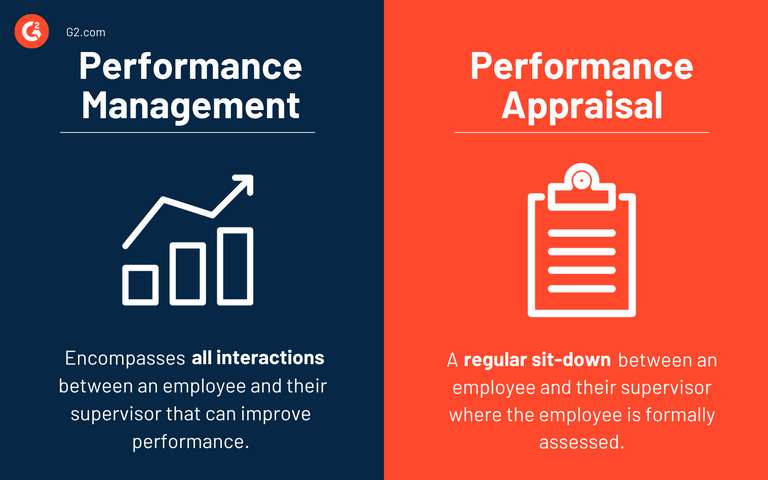How To Evaluate Work Performance Of Employees
For any company, measuring actions is essential to be able to detect productivity problems. An evaluation of the work performance allows to know the productivity and to estimate if the results are in line with reality.
There are many aspects that influence the fulfilment of objectives and productivity, one of the most important is how employees act and work, and it is at this point that work performance becomes more important.
Some of the important points to know are the factors that influence work performance, which is the parameters to measure and the methods that exist to evaluate productivity. Let’s get to know each of these points.

What is work performance?
Job performance refers to the quality of work or service performed by employees within an organization. It takes into account everything from professional competencies to interpersonal skills.
It can also be defined as the way in which employees perform and execute their activities and how this influences the development and growth of a company. In any case, it is important to note that results are not everything, but that it is a consequence of job performance. These days, most companies make use of a performance review template that helps to evaluate the performance of an employee with some easy metrics.
Importance of job performance
As we all know, the performance of employees significantly influences the results of an organisation, therefore, it is important to carry out an evaluation of job performance, each member, individually and as a group, perform different activities in order to offer products and services that meet quality standards, that are of satisfaction to customers and that help to consolidate the company in which they work.
If the measurement of work performance is done properly, it gives the company the opportunity to place its workers in suitable positions, improving each process, solving weak points, motivating them and, above all, significantly increasing productivity.
The evaluation of job performance not only benefits the company, as workers can opt for better jobs according to their profiles. It also tests the leadership capacity of supervisors, their ability to communicate and how they integrate workers into the organisation.
What are the advantages of measuring job performance?
Benefits can be established according to the functions performed by each employee.
- It offers improvements or promotions based on demonstrated job competency.
- It detects problems that may exist within the organisation.
- External factors that affect the work of employees can be detected and reduced.
- It allows to determine if a worker is suitable or not for a position he/she holds or for which he/she is applying.

What should we measure to determine productivity?
In order to carry out an evaluation of work performance, it is necessary to know the variables to be measured and to follow up at least once a year to correct any errors before they become irreversible or have serious consequences on the final result.
Normally, the personnel in charge of this task tend to be the director, technicians and supervisors of the area being evaluated. It is important to consider some fundamental aspects, such as:
- Knowing the company’s objective and measuring its achievement.
- Knowing each job position, its needs and evaluating each tool provided by the company.
- Knowing each employee, their trajectory and performance in their position.
- Offer solutions
With this, we must also know some of the parameters to take into account in order to have a complete perspective that includes some aspects for a correct measurement of work performance.
- The productivity and quality of the worker in his job. Whether they meet the established deadlines and use the tools provided by the company, among others. Productivity is a key element when evaluating work performance.
- Efficiency is the result of maximising productivity with less effort. An efficient worker is one who has the ability to perform his or her tasks in the minimum time with the highest quality.
- Acquired training has to do with the training of the employee. A well-trained worker is prepared to help in the organisation. If the company invests in the training of its employees, it invests in the company itself. Therefore, having a fully equipped training room with proper furniture and equipment such as training tables and chairs, whiteboards, projectors, etc. would be beneficial to create a conducive environment for the employees undergoing training.
- Presence of the work environment, this point covers aspects of an emotional nature and it is important to take them into account when assessing job performance. These can be their aspirations, ambitions, relations with the challenge of the staff, among others.
- Attitude affects productivity and the working environment.
- Teamwork, knowing if they coordinate with the rest of the members is essential for results.
- The objectives achieved, for a good performance of employees it is important that they know what their objectives are, i.e. what is expected of them.
The aim of performance testing is to motivate employees so that existing weaknesses and bad practices can be reduced and labour productivity can be increased.
Methods for measuring work performance
Once the parameters to be evaluated have been determined, some of the methods for the evaluation of work performance can be used, and there should be a person in charge of the evaluation based on the system chosen.
The evaluation should be as objective as possible, taking into consideration at least the parameters mentioned above. There are different methods, some of which are listed below:
- Scoring method: this consists of establishing the items that you want to evaluate the worker’s performance, a score is given between 1 and 10 based on how he/she performs his/her activities.
- Evaluation of a supervisor’s work performance: this consists of the top manager of the department and the company carrying out an evaluation of the employee’s work performance. This is recommended after 6 months of the employee’s employment.
- Description method: the HR department will draw up a list with phrases describing the work activities in positive and negative. Each employee will be marked with the one that most closely matches the way they perform their tasks. The more positive descriptions a worker has, the better the performance and vice versa.
- The positive part of this method is that the results are obtained immediately, as the person in charge can immediately determine the causes that lead to good or bad performance.
- Self-evaluation method: The worker him/herself rates his/her performance, analysing the areas with the greatest problems for the achievement of his/her objectives, being aware of his/her virtues and limitations, offering his/her proposals for improvement.
- Colleague method: colleagues can also evaluate the work performance of other workers, they are the best witnesses within the organisation. Very similar to the previous one, except that here it is the other colleagues who evaluate.
- Responsible person’s measurement method: or employee survey, in this method the employees will rate the performance of the area manager, by means of anonymous surveys.
- Method of evaluation of work performance by the client: users or clients answer a series of questions where they evaluate the work of the employees they have dealt with.
It is important to carry out this evaluation in order to be able to analyse whether the established objectives are being met. In this way, the necessary decisions can be taken to improve productivity and increase the possibilities of growth for the company and its employees.

Factors that can influence the performance of workers
- Lack of preparation: there are jobs for which professional studies are necessary. If you do not have the knowledge, you will not be able to perform your tasks in the right way or achieve the objectives set.
- Vocation: it is important not to lose sight of the involvement factor that employees feel, nor that they may feel the need to continue training to improve their performance just because they really like what they do.
- Passion: if the employee does not like their job or simply does not feel passionate about what they do, they will not perform adequately.
- Education: This plays a pivotal role in shaping an individual’s professional growth and significantly influences the performance of workers across diverse industries. As workers gain access to quality education, they acquire the necessary knowledge, skills, and competencies that enable them to excel in their respective job roles. Ultimately, investing in the education of workers sets the foundation for an empowered and dynamic labour force that drives the continuous growth and success of organisations worldwide. Participating in workshops by Langevin can expose employees to different perspectives and best practices within the industry, equipping them with valuable tools necessary to excel in their roles.
- The working environment: an environment where the employee is motivated, understood, supported and stress-free will help them to do a better and more efficient job.
- The timetable: achieving a work-life balance is important for employees. For this reason, organisations have forgotten the thinking that the longer the working hours, the better the performance. Nowadays, it has been proven that performance increases if the employee is happy with the management of his or her working hours.
- Environmental factors: working in a place that has all the right hygiene conditions, without disturbing noises, with good lighting, will influence work performance.
It is important to be able to detect the status of each of these factors as they can affect employees, the work team or department and the company as a whole.
Qualities that an employee with good job performance should have
Good work performance is usually marked by a series of characteristics, among the positive ones we find:
- To be applied, the attitude, effort and disposition of the person are fundamental at the moment of achieving solutions. Productivity, interest and commitment of each person to the company will influence the results.
- Having the capacity to learn is directly linked to the previous point.
- Being of integrity, every organisation looks for employees it can trust. This means making the best decisions that benefit the general interest.
- Be adaptable and flexible, so that you can continue to be productive when changes occur in the organisation.
- Possess good interpersonal skills that allow you to relate to your team and other departments.
Why should we evaluate the job performance of employees?
As you already know, work performance directly affects the company’s productivity and measuring it also allows us:
- Detect errors and strengths: whether in the tasks or in the adequacy to the jobs.
- Detect biases and external agents: The performance evaluation helps us to detect if there is anything that may be affecting the performance of workers, which has nothing to do with the company. Such as family agents, health problems, economic problems, among others.
- Implement incentive schemes: these can help in motivating workers. If good work performance is rewarded, workers will put more effort into achieving objectives.
- Establish training plans: for workers who deserve it, either because they need it or because they are close to getting a promotion. It is a way of promoting talent within the organisation.
- Establish career plans: this is related to the previous point.
This is part of what can be achieved if performance appraisal is carried out in an effective way using one of the methods we have mentioned.

Difference between Performance Management and Performance Appraisal
Performance appraisal is a regular, quantitative and qualitative measurement of the effectiveness of each employee in his or her job. In other words, it shows us what the strengths and weaknesses are so that we can develop strategies to improve results.
Work performance management is a process that is responsible for finding and applying measures that help to improve the efficiency of employees. The main difference between the two is that performance management is focused on analysing and giving importance to people’s performance as such, while performance appraisal is concerned with measuring their effectiveness.
Nowadays, many companies give higher priority to management than to evaluation, as global strategies are often more relevant for some than the performance of each individual, his or her failures and successes. But this is a matter for individual organisations to decide.